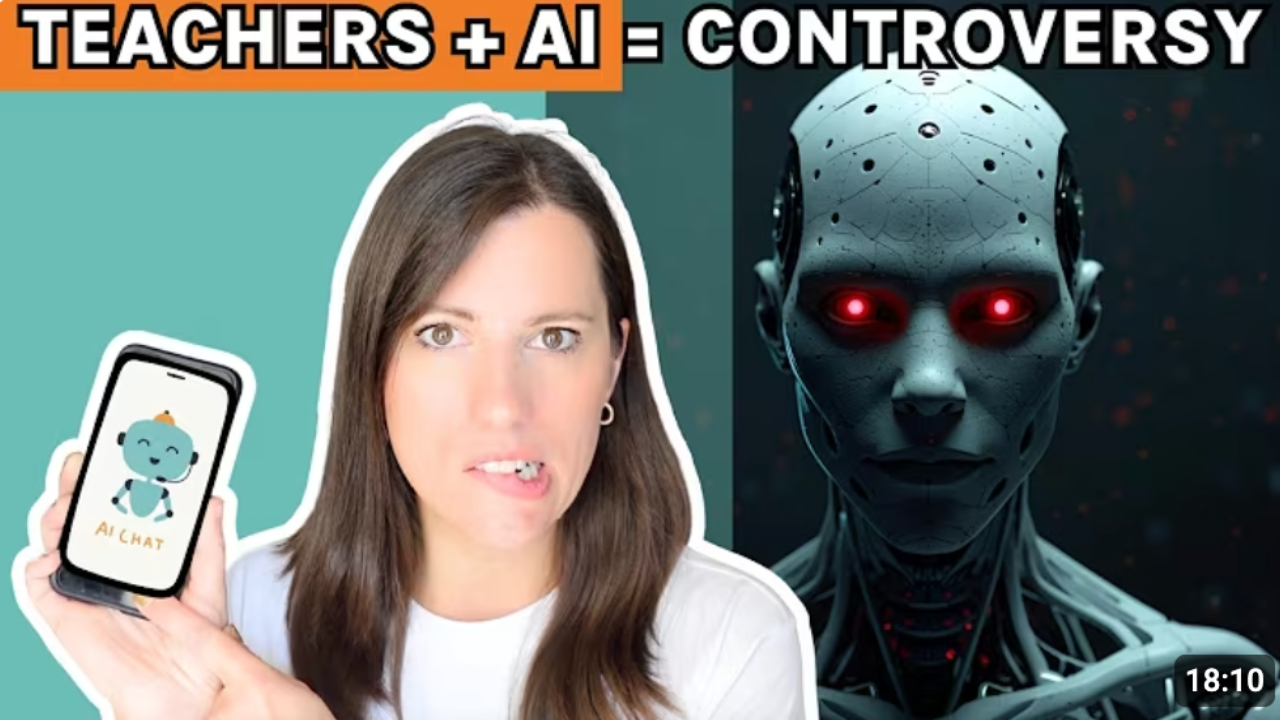Is It Ethical to Use AI as a Teacher?
Oct 15, 2025
AI can write lesson plans, mark quizzes, and even draft your emails in seconds. But is it right to use it?
In recent years, artificial intelligence has crept into almost every part of education. Teachers are using it to save hours, personalise feedback, and streamline communication, but others worry it’s blurring ethical lines.
So, where do we draw the line between being efficient and being irresponsible?
Let’s break it down.
1. AI and Teacher Emails: Time-Saver or Too Impersonal?
The pros:
AI tools like ChatGPT can help teachers reply faster, polish grammar, and save precious time. A clear, well-written email can even reduce misunderstandings with parents or staff.
The cons:
If the message feels too generic, it can come across as cold or careless. Parents and colleagues can sense when a response doesn’t sound like you.
My view:
It’s not unethical, it’s all about how you use it. When AI becomes your writing assistant rather than your ghostwriter, you stay in control. Feed it your own key points, add your natural tone, and always check before sending.
Used well, AI can help you communicate more clearly — not less personally.
2. Reports and References: When AI Can Help (and When It Can’t)
The pros:
Writing hundreds of reports or references is exhausting. AI can help you phrase genuine thoughts more fluently and catch those typos your tired eyes miss.
The cons:
If you let AI invent details or generate full paragraphs without oversight, you risk losing authenticity. A “perfect” report that doesn’t reflect the student’s real performance crosses into unethical territory.
My view:
AI can enhance your writing, but it shouldn’t replace your professional judgement. You know the child — AI doesn’t.
Give it direction, check every sentence, and make sure your voice stays the one speaking.
3. What About Student Perception and Fairness?
Here’s where the ethics get tricky. Some students argue: “We’re banned from using AI in our coursework, so isn’t it cheating if teachers use it?”
It’s a fair point. But context matters.
If a teacher uses AI responsibly to manage workload, it’s professional efficiency. If they let AI create full comments or materials without understanding or checking them, that’s where trust breaks down.
In the end, it’s about transparency and professionalism. Students’ trust in teachers shapes how they perceive AI use. When they see you as thoughtful and consistent, they’ll view AI as a smart tool, not a shortcut.
4. Environmental Impact
We rarely talk about the energy behind AI, but it’s worth acknowledging.
AI models rely on large servers that consume electricity. However, if AI significantly reduces your screen time, planning hours, and burnout, the trade-off may balance out.
Use it with awareness. The goal isn’t more technology for technology’s sake — it’s better balance.
5. Data Privacy and Professional Trust
When using AI tools like ChatGPT, never paste confidential data — no student names, grades, or sensitive details.
Instead, keep your prompts general or anonymised:
“Generate a positive progress comment for a student who has improved participation in science discussions.”
Responsible AI use protects both your students and your reputation.
6. Professional Identity and Skill Erosion (the extra consideration)
Here’s another angle we often overlook: the risk of deskilling.
If teachers lean too heavily on AI for writing, feedback, or planning, we might slowly lose confidence in our own professional voice.
AI should augment your expertise, not replace it.
The ethical question becomes: are you still exercising professional judgement, or letting a tool think for you?
Use AI to refine your ideas, not to create them from scratch. That’s the sweet spot between innovation and integrity.
The Verdict
So, is it ethical to use AI as a teacher?
✅ Yes, if you use it responsibly.
✅ Yes, if you keep your professional judgement in the driver’s seat.
✅ Yes, if you personalise, proof-check, and protect privacy.
AI is already reshaping education, and ignoring it won’t make it go away. The key is thoughtful adoption — using it to reduce workload and amplify your expertise, without losing the human heart of teaching.
Final Thoughts
AI shouldn’t replace your voice — it should give you the time and energy to use it more. As teachers, we don’t need to fear these tools; we just need to wield them with intention.
🎧 Listen to the full episode: Is It Ethical to Use AI as a Teacher?
Available on Spotify, Apple Podcasts, and YouTube.
📝 Download your free ChatGPT Prompt Sheet for Teachers → https://www.missestruch.co.uk/offers/oPat2FLS/checkout
☕ You bring the coffee, I’ll bring the Teach & Tell.



